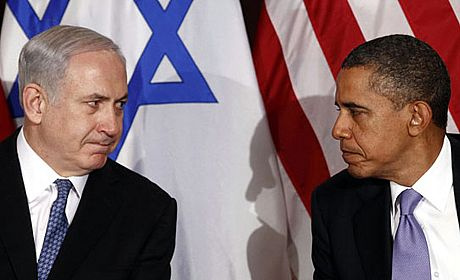Washington and Its Various Differences with Tel Aviv

The issue of Israel's intervention in US domestic affairs has always worried the US political sphere and public opinion.
Traditionally, Democrats have always enjoyed more support from the Jewish lobby; hence, it seems that, under the new circumstances, the type of policies Netanyahu’s team is pursuing is different from Obama's viewpoint on foreign policy.
Some evaluations are based on the assumption that Washington's difference from Tel Aviv is over Iran's nuclear issue, but it must be reiterated that their differences go beyond Iran's nuclear issue. With regard to its Middle East policies, the US has always demanded a response from the ruling regime in Tel Aviv on the issue of reconciliation in the Middle East, but in practice, Tel Aviv has never responded to this issue. For example, the matters of difference are related to the settlements or the peace process which has been the US foreign policy priority.
Considering these issues, the US has gradually distanced itself from the Zionist Regime and, today, Netanyahu has attempted to exaggerate Iran's nuclear dossier in order to take new positions and, at the same time, receive more concessions from Washington. The US is also well aware of Tel Aviv’s policies. In other words, when Israel talks about Iran's nuclear issue, or when it points it out in the speech made in the UN along with a drawing, it is in fact deviating from the main issue. It shows that the regime in Tel Aviv still evades joining the NPT. On the other hand, the US has not yet received a response from Israel with regard to the nuclear-free zone in the Middle East. Even in the last session of the IAEA Board of Governors, proposal of this issue was delayed, but it is still on the IAEA’s agenda.
Tel Aviv and US Elections
Today, under new circumstances in Tel Aviv, Netanyahu is trying to impact the US election in order to engineer a more appropriate future and arrange a new situation for himself from US domestic developments. Tel Aviv also attempts to follow positions of demand from presidential candidates in the US, an issue with which present US officials are not content. The reason is that they know well how some Israelis have invested in the Republican team, especially in Mitt Romney's campaign ads. Obama knows the people involved in making these campaign ads well.
It must be noted here that this issue has not had a vast impact on American society, hence, on this basis, it can only be said that only a small percentage has been reduced from Obama's supporters. Therefore, such efforts by Tel Aviv have not been able to create a thunderstorm in the US election. It should be mentioned that, in the last week, Obama has gained in popularity in traditional Republican states, particularly in Florida, which is very interesting.
It is said that Netanyahu has, to some extent, withdrawn from his positions and it seems that he has become aware of the lack of success his tactics have had inside the US. Tel Aviv is now trying to interfere in the US election through other methods, and US officials must be alert about it.
Today, public opinion and the US electoral system and Israel's lobby to change the situation, contrary to past efforts, are not necessarily harmonious. Therefore, Obama has maintained his distance from his rival, Mitt Romney. Now we must wait and see how the multi-faceted policies of Obama and Israel, despite phone conversations and with no personal meetings, will be followed in the next stages.

